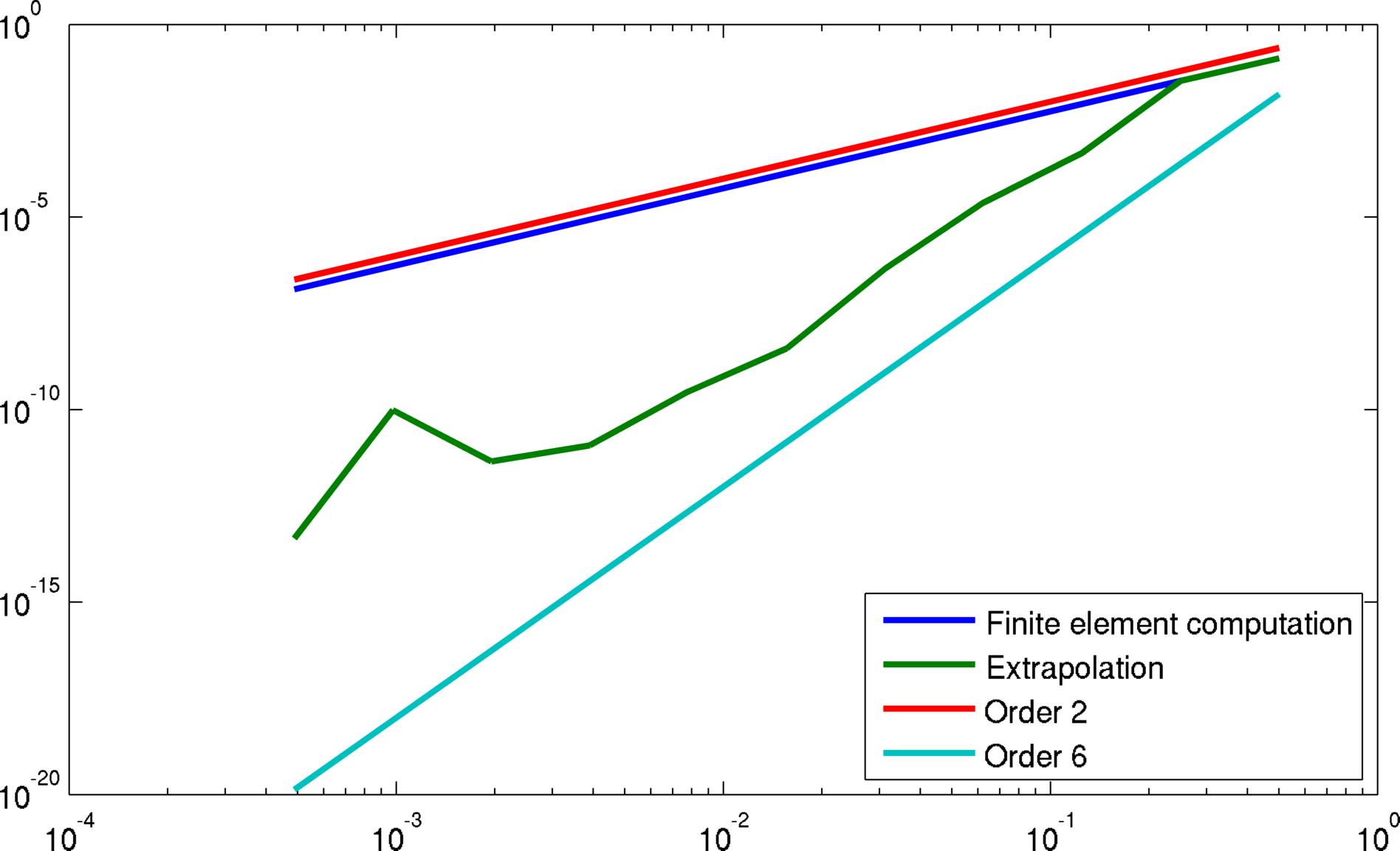In some of my computations I calculate a scalar value $\lambda_h$ (in my case an eigenvalue) depending on a finite element discretization of the domain. Usually we can manage to find estimates of the form $$ |\lambda - \lambda_h| \leq C h^k $$ where $k$ depends on the problem, the degree of the approximation, etc.
Question:
I was wondering under which circumstances (if any) it is possible to say that the error of a scalar function depending on the FE approximation has a Taylor-like expansion: $$ \lambda_h = \lambda_{exact} + C_1h^{\alpha_1}+C_2h^{\alpha_2}+...$$ where $\alpha_i$ is an increasing sequence.
If there are any relevant references, I am interested.
Context:
This is in connection with one eariler question of mine, regarding the good behavior of some extrapolation techniques applied to my problem. It turns out that the extrapolation I use (Wynn's epsilon algorithm) gives the limit of the sum of $n$ geometric sequences starting from $2n+1$ values. The existence of a Taylor-like expansion for the eigenvalue would justify this behavior since the first few Taylor coefficients will be cancelled when doing the extrapolation.
In the example presented below the initial computations using only finite elements give a convergence of order 2, while the extrapolation gives something like order 6, quickly running towards machine precision. See the picture:
